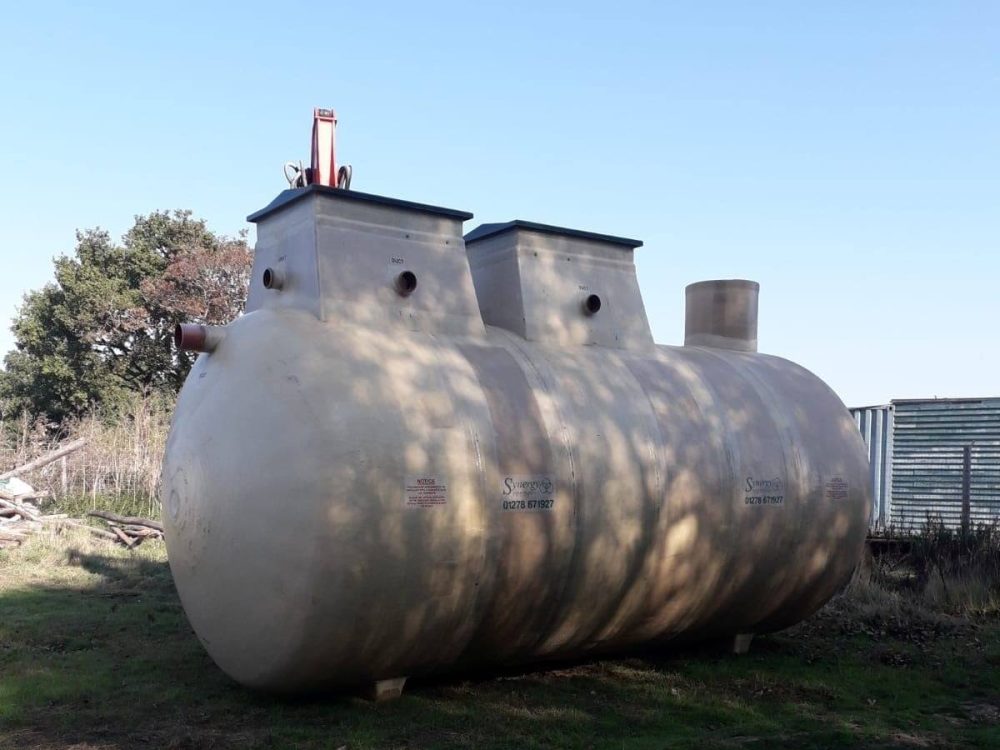An efficient and well-functioning septic tank system is crucial for the smooth running of your home’s wastewater treatment process. A poorly-maintained septic tank can cause unpleasant odours, slow drains, and even groundwater contamination. This is where the importance of septic tank maintenance comes into play. It not only ensures a safe and comfortable home environment but also helps prevent costly repairs or replacements in the future. In this comprehensive guide, we will discuss essential tips and guidelines for maintaining your septic tank system, highlighting the importance of regular upkeep and professional servicing.
As a family-run business based in Northern Ireland, Burke Environmental specialises in septic and wastewater tank installations, as well as offering specialist drainage solutions. Our expertise and experience enable us to guide homeowners through the best practices for septic tank maintenance, empowering them to make informed decisions in safeguarding their wastewater management systems.
A critical first step in septic tank maintenance is keeping track of your system’s overall health. Regular monitoring will help you determine the ideal frequency for essential maintenance tasks such as pumping and drain field inspections. It is generally recommended to have your septic tank pumped every 3-5 years, but this can vary depending on factors such as tank size, usage, and household size. Ensure that you consult with a professional to tailor an appropriate maintenance schedule for your specific situation.
Another important aspect of septic tank maintenance is understanding and implementing best practices for proper system usage. This can involve managing water usage, regularly inspecting and maintaining pipes, and properly disposing of waste. Additionally, it is crucial to know and avoid the common causes of septic system problems. These may include using excessive amounts of household chemicals, flushing non-biodegradable items, and neglecting regular maintenance.
Lastly, investing in routine professional servicing is vital in maintaining the efficiency and longevity of your septic tank system. Our team at Burke Environmental understands the intricacies of septic and wastewater management, and we provide expert guidance and support through regular system inspections, expert advice, and timely solutions.
Stay tuned as we delve into the specifics of septic tank maintenance, providing practical tips and insights to help you optimise your system, ensuring it remains in excellent working condition for years to come. Our goal is to empower homeowners through accessible, informative, and helpful content that prioritises septic tank health and promotes hassle-free living.
Septic Tank Maintenance: A Comprehensive Guide for Homeowners
Owning a home with a septic tank comes with certain responsibilities to ensure the proper functioning and longevity of your wastewater treatment system. This comprehensive guide offers valuable insights and practical tips to help you maintain your septic tank and safeguard its efficiency. Read on to learn more about how adopting a preventive approach and investing in professional servicing can save you time, money, and a great deal of inconvenience in the long run.
Understanding Your Septic System
Before diving into the specifics of septic tank maintenance, it is important to have a basic understanding of how your septic system functions. The main components of a typical system include the septic tank, a distribution box, and the drain field or leach field. Wastewater from your home is directed into the septic tank, where solid waste settles at the bottom, and scum rises to the top. The wastewater is then gradually released into the drain field, where it percolates through the soil and is naturally purified before re-entering the groundwater.
Key Components of Septic Tank Maintenance
1. Regular Tank Pumping
One of the most crucial aspects of septic tank maintenance is regular tank pumping. It is generally recommended to have your septic tank pumped every 3-5 years, although this frequency may vary depending on factors such as the size of your tank, household occupancy, and water usage. Failing to pump your septic tank within the recommended time frame can lead to an accumulation of solid waste, which can ultimately cause blockages and even septic system failure.
2. Drain Field Inspection and Maintenance
The drain field plays a vital role in the wastewater treatment process, as it is responsible for absorbing and purifying the released liquid waste. To ensure the optimal functioning of your drain field, it is important to keep it clear of any obstructions, such as trees or large shrubs. Additionally, avoid driving or parking your car on the drain field, as this can compact the soil and impair its ability to percolate water. Professional inspections of your drain field can help identify any potential concerns or problems before they escalate.
3. Proper System Usage
Employing best practices for septic system usage can greatly extend the life of your tank and safeguard its efficiency. Some key guidelines to follow include conserving water, avoiding the disposal of grease or non-biodegradable items down the drain, and using septic-safe household cleaning products. By adopting these mindful habits, you can minimise the strain on your septic system and help maintain its optimal functioning.
4. Regular Inspections and Maintenance
Routine professional inspections are a critical component in maintaining the performance and efficiency of your septic system. A qualified septic specialist can evaluate the overall health of your system, identify any potential issues, and recommend preventive maintenance measures. Partnering with a trustworthy, experienced service provider can set you on the path to worry-free septic system ownership.
Addressing Common Septic System Problems
No matter how diligent you may be in maintaining your septic tank, occasional issues can arise. Some common problems that homeowners may encounter include slow drains, unpleasant odours, or wastewater backups. If you encounter any such issues, it is essential to seek prompt professional assistance, as ignoring these warning signs can exacerbate the problem and result in costly repairs or even system failure.
The Importance of Preventative Maintenance
Preventative maintenance is the cornerstone of septic system longevity and efficiency. By adopting a proactive approach to septic tank care, you can detect and address potential issues before they become severe. Regular inspections, proper system usage, and timely intervention by qualified professionals all contribute to the overall health and performance of your septic tank, preventing costly repairs or replacements down the line.
Conclusion
Caring for your septic tank system is an essential aspect of responsible homeownership. This comprehensive guide highlights the importance of regular maintenance and proper system usage in ensuring the efficiency and longevity of your septic tank. By partnering with experienced professionals, such as Burke Environmental, you can secure expert guidance and support in securing the long-term success of your wastewater management system. Utilise the knowledge in this guide to safeguard your investment and enjoy a peaceful, hassle-free living environment.


